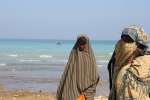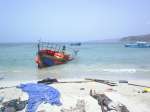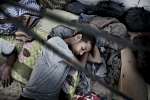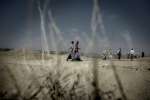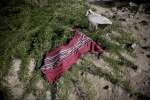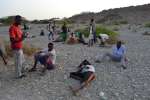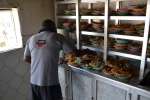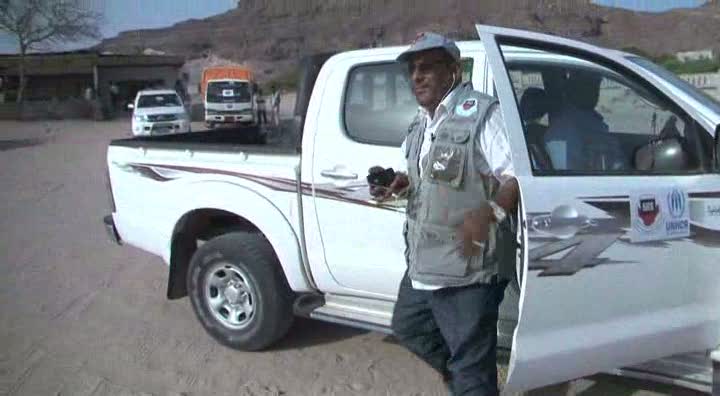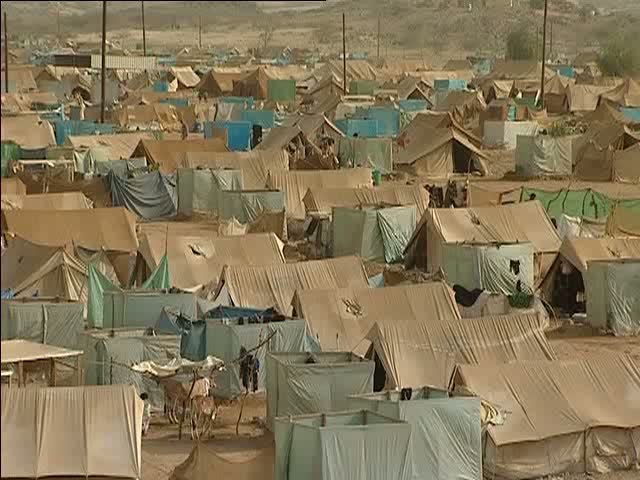- Text size
 |
|  |
|  |
| 
- عربي
Help is a phone call away for displaced Yemenis
News Stories, 5 February 2016
SANA'A, Yemen, Feb 5 (UNHCR) – Fleeing airstrikes near his home in Haradh, near the border with Saudi Arabia, Yemeni father of 10 Ahmed* sought shelter in the capital Sana'a – where he found help was only a phone call away.
"We lost everything and wherever I go I am humiliated," he told an operator he called at Tawasul, an innovative new call centre set up to link Yemenis in need with those in those in the humanitarian community who are there to assist.
"When I ask people for help they call me names and refuse to give me a hand. I am sorry but this is what people are saying and how they are treating me," he added.
Ahmed went on to explain that his family needed help paying for rented accommodation and food, and gave the operator his contact details so the appropriate humanitarian agency could reach out to him and directly assess his situation and respond accordingly.
Tawasul – which means "dialogue" in Arabic – is a partnership between UNHCR, the UN Refugee Agency, and non-profit AMIDEAST. Set up in December, it provides a much-needed bridge between millions of people of concern across war-ravaged Yemen, and a range of humanitarian agencies.
Trained, Arabic-speaking operators at the centre in Sana'a take down details from callers and note their needs, and then advise them how, when and where they can access the services.
"Tawasul is the first of its kind in Yemen and goes a step further in firmly anchoring the protection obligation of the humanitarian community to the people of Yemen," said Johannes van der Klaauw, UNHCR's representative in the country.
Since war broke out in Yemen last March, more than 2.5 million people have become internally displaced. Many have lost their livelihoods and are seeking shelter with relatives and friends in schools, public and abandoned buildings, makeshift shelters or in the open with little to no protection.
In a bid to help vulnerable displaced people find the help they need, UNHCR and AMIDEAST have invited numerous other humanitarian agencies at work in Yemen to use Tawasul to disseminate information concerning their programmes and services.
Despite severely restricted humanitarian access and security constraints, UNHCR reached over 280,000 internally displaced Yemenis with essential household items such as bedding, kitchen utensils and shelter material in 2015.
The UN Refugee Agency has continued to provide protection services such as psychosocial support, together with legal and cash assistance through outreach to communities with large concentrations of displaced persons.
So as to ensure high standards of accountability, Tawasul operators also gather complaints and other feedback to be referred to the relevant agency for subsequent follow up.
"Tawasul reinforces the accountability of the humanitarian community to persons of concern," van der Klaauw added. "By providing an avenue for complaints, criticism and feedback on the quality and impact of services that are being provided, Tawasul is providing an essential service for the people of Yemen and the humanitarian actors operating in the country."
Yemenis can contact Tawasul toll-free at 800-3030 on Sunday to Thursday from 09:00 to 15:00 local time.
By Teddy Leposky in Sana'a, Yemen


